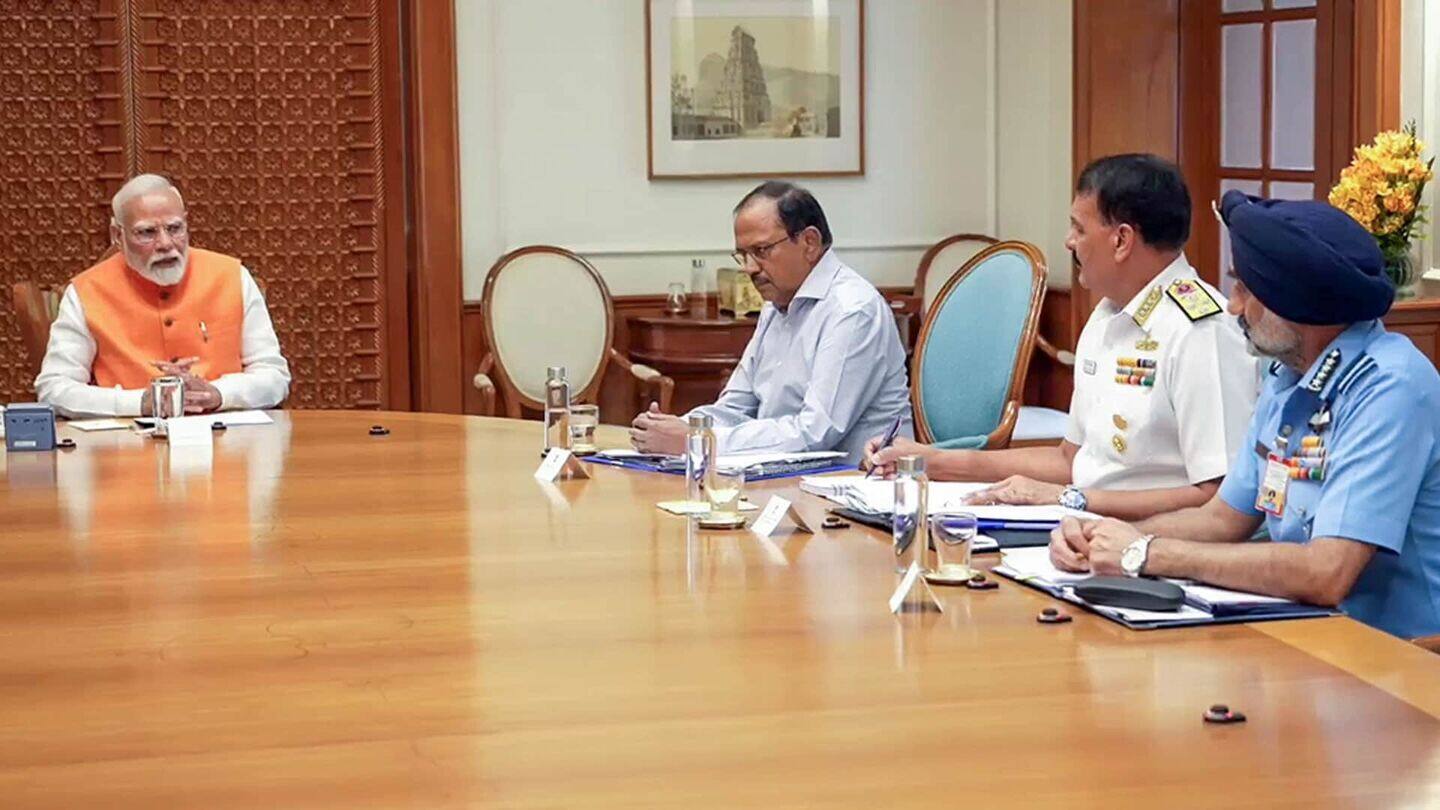
Modi to chair 'super cabinet' meeting today—first since Pulwama attack
What's the story
Prime Minister Narendra Modi will chair a crucial meeting of the Cabinet Committee on Political Affairs (CCPA) on Wednesday. This comes after a national security meeting at his New Delhi residence on Tuesday night in the wake of the terrorist attack in Pahalgam, Jammu and Kashmir, that killed 26 people. The CCPA, also called the "Super Cabinet," is one of the most influential cabinet committees in India's political landscape.
Committee functions
CCPA's role in shaping national policy
The CCPA is instrumental in tackling major political and economic issues of national significance. Apart from Modi, it includes Defense Minister Rajnath Singh, Home Minister Amit Shah, Road Transport Minister Nitin Gadkari, Finance Minister Nirmala Sitharaman, and Commerce Minister Piyush Goyal. The committee has met in the past during crucial moments like the 2019 Pulwama terror attack, in which 40 CRPF jawans were killed. The meeting was held to assess the situation and discuss how to respond to the attack.
Military response
Modi's recent directive to Indian armed forces
It was also in that CCPA meeting that the Indian government withdrew "Most Favored Nation," or MFN, status accorded to Pakistan. Following the meeting on Tuesday, Modi has given the Indian Armed Forces "complete operational freedom" for a retaliatory strike. The PM will also chair a meeting of the Cabinet Committee on Security (CCS) at 11:00am. The CCS is the government's top decision-making body on national security matters.
Strategic measures
CCS's 1st meeting post-Pahalgam attack
The first CCS meeting, which was held a day after the Pahalgam terror attack on April 23, saw India adopting several diplomatic and strategic countermeasures against Pakistan. This included downgrading diplomatic relations with Pakistan, closing key border routes, suspending the Indus Waters Treaty, and expelling Pakistani military attachés from its High Commission in New Delhi.